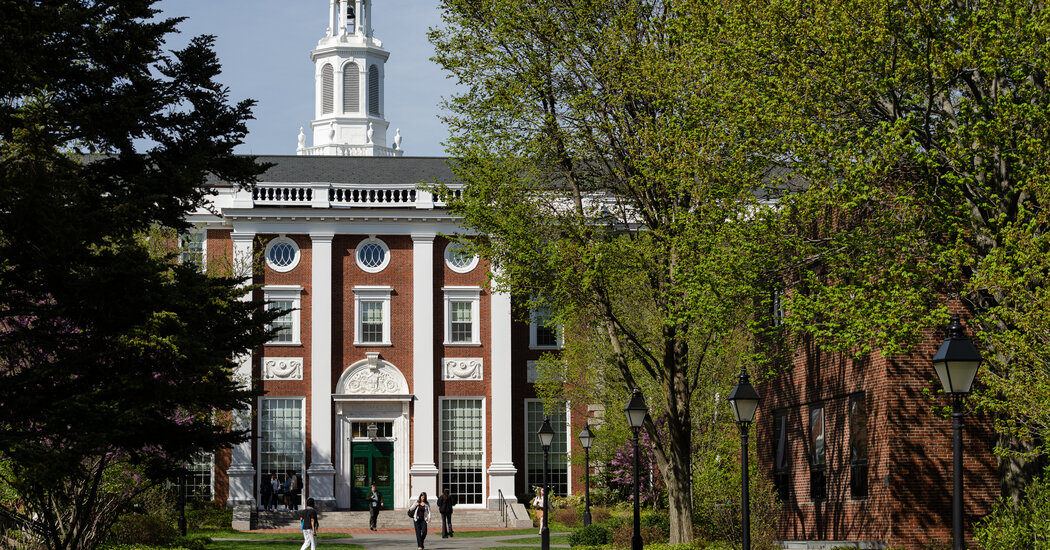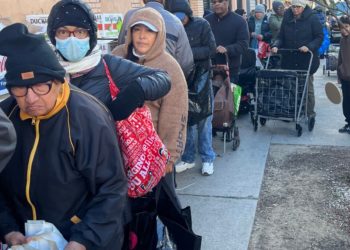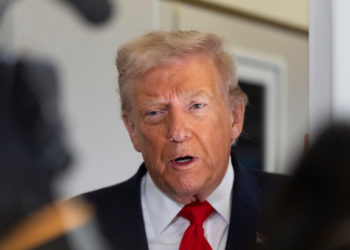If it happened to Harvard University, could it happen anywhere?
The Trump administration’s surprising bid to end Harvard’s international enrollment put the higher education world on edge this week, looming as a larger threat against academic autonomy.
Well beyond the halls of Harvard this week, college leaders were shocked that one swift move by the federal government could eliminate their ability to serve students from abroad, a growing population that has infused their campuses with cachet and wealth.
“This is a grave moment,” Sally Kornbluth, the president of the Massachusetts Institute of Technology, wrote in a message to her campus.
More than 5,000 miles away, Wendy Hensel, the president of the University of Hawaii, said that it was “reverberating across higher education.”
President Trump has already unnerved universities this year by launching investigations, freezing grants, demanding changes in campus practices and attempting to deport international students. He has justified his punitive approach as a means to combat what he considers antisemitism. But he and his allies also have long resented a perceived liberal bias and racial diversity efforts at prestigious colleges.
The Trump administration said Thursday that it revoked Harvard’s international student certification because the university had failed to meet its demands, including a request for records of student protest activity dating back five years.
To many academics, that was a clear signal that Mr. Trump was prepared to use any federal mechanism as leverage if he did not get what he wants.
“While Harvard is the victim of the moment, it’s a warning and unprecedented attempt of a hostile federal government to erode the autonomy of all major universities in the U.S.,” said John Aubrey Douglass, a senior research fellow at the Center for Studies in Higher Education at the University of California, Berkeley.
Mr. Trump may not get his way in the end; a federal judge temporarily blocked his maneuver on Friday, setting up another legal battle that Harvard is willing to fight.
But the move itself could still force campuses elsewhere to think harder about how far they are willing to go to resist the president’s demands. And it likely will scare off some international students who fear their college track in the United States could be disrupted at any point.
“The implication is a growing and great chill on attracting academic talent to the U.S.,” Mr. Douglass said.
The reaction highlights the increasing role international students have played in American higher education, particularly at some of the most prestigious universities. Across the nation, enrollment from abroad has doubled in the last 25 years, with more than 1 million international students now studying in the United States.
While international students make up slightly more than 5 percent of university students nationwide, some of the nation’s most selective schools rely far more heavily on them. At New York University, home to nearly 60,000 students, one-third of them are international. At Columbia, about two in five students come from abroad. And at Harvard, more than a quarter of students come from across the globe.
Universities see many benefits from having a global student body that enriches the intellectual, social and cultural life on campus. Drawing the world’s top talent also helps develop outstanding academic programs and opportunities for groundbreaking research.
Many students who complete their degrees in the United States stay here afterward to build their careers, whether in academia or private industry, fueling a global economy.
But as selective universities have grown more international, some conservatives say American students are losing out.
“Upper middle class children in America are having an increasingly hard time getting into places like Harvard,” said Jay P. Greene, a senior research fellow at the Heritage Foundation’s Center for Education Policy. “More of those spaces are consumed by foreigners and fewer are available to American students.”
Kristi Noem, the homeland security secretary who terminated Harvard’s access to the federal Student and Exchange Visitor Program, said on Thursday that the move was a response to an unsafe campus environment for students, including many Jews. She alleged that many protesters who have engaged in harassment and physical assault were foreign students.
“Let this serve as a warning to all universities and academic institutions across the country,” she said in a statement.
Abdullah Shahid Sial, a sophomore at Harvard from Pakistan, welcomed the judge’s halt to the federal order but said that the ruling will not undo the damage that has already been inflicted on American higher education. Many international students don’t feel comfortable living in the United States anymore, according to Mr. Sial.
“They wanted us to feel unwelcome,” he said. “They’ve done a pretty good job of that.”
Niall Hegarty, a professor of management at St. John’s University in New York who has researched international student enrollment trends, said the growth in international students has slowed in recent years compared with the early 2000s.
Two decades ago, he said, many wealthy Chinese families had aimed to send their children to the United States to study. At the time, U.S. companies flocking to China were likewise eager to hire Chinese employees who had been educated at American universities.
That dynamic exists around the world, as people educated in the United States can help American companies operate effectively abroad, Mr. Hegarty said.
“I think the takeaway is that our country needs them, they add value to the classroom, and when they go home, they’re proponents of U.S. businesses,” he said of international students.
Ms. Noem suggested Thursday that universities were driven by a financial motive to admit more international students, accusing schools of trying “to help pad their multibillion-dollar endowments.”
The University of California and other public institutions increased their international enrollment in previous decades to offset state budget cuts and keep tuition hikes in check for in-state residents. At public schools, international students pay out-of-state tuition at rates far higher than residents, though so do students from other states.
But it is unclear whether international students drive much more revenue for Ivy League schools like Harvard, which provides financial aid based on need and regardless of citizenship. And the University of California has already retrenched from earlier efforts to enroll international students after facing a backlash from California families.
Mr. Greene, the Heritage Foundation fellow, said that international study programs began with twin motivations: to improve American education with perspectives from overseas, and to help spread American political values around the world when students return to their home countries.
Over time, though, he said the predominance of international students on some campuses has begun to undermine the original goals.
“When it gets large enough, rather than expanding the perspectives that are available for Americans in higher education, it allows for the dominance of other perspectives from around the globe,” Mr. Greene said. “What is beneficial at a low level becomes dangerous politically at a high level.”
Mr. Hegarty himself came to the United States as an international student from Ireland in 1988 after being recruited to St. John’s University on a track scholarship. His teammates included Jamaicans, Swedes and Canadians, in addition to Americans.
“It was a fantastic experience of young people growing up together,” he said. “Unfortunately, a lot of that, it appears, is going to be lost.”
Hafeez Lakhani, a college admissions counselor in New York, said that he was already aware of international students who chose Britain or Canada over the United States because of actions by the Trump administration. The latest move against Harvard is bound to amplify the trend.
“This sends a signal to the rest of the world that not only is Harvard closed to the international best and brightest, but that the U.S. is not a welcome place for international students,” Mr. Lakhani said.
He added that it could open up opportunities for more domestic students with compelling records to land spots at the nation’s oldest and most prestigious university.
Miles J. Herszenhorn and Troy Closson contributed reporting.
Laurel Rosenhall is a Sacramento-based reporter covering California politics and government for The Times.
Isabelle Taft is a reporter covering national news and a member of the 2024-25 Times Fellowship class, a program for journalists early in their career.
Steven Rich is a data reporter at The Times, using data analysis to investigate major issues and contextualize current events.
Stephanie Saul reports on colleges and universities, with a recent focus on the dramatic changes in college admissions and the debate around diversity, equity and inclusion in higher education.
The post Universities See Trump’s Harvard Move as a Threat to Them, Too appeared first on New York Times.




